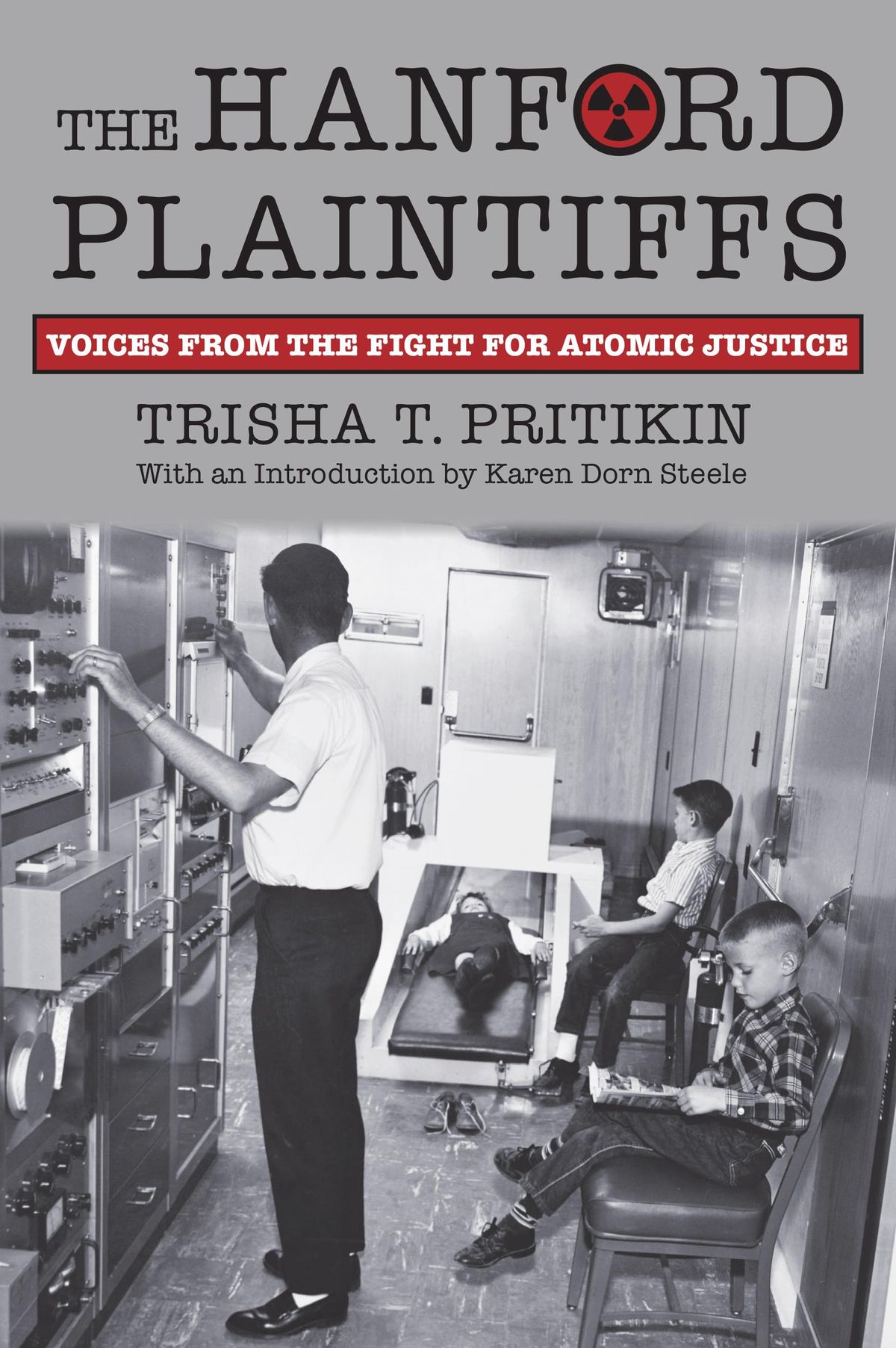Locally Writ: Trisha Pritikin tells stories of Hanford ‘downwinders’

Born in Richland, attorney, activist and now author Trisha Pritikin spent her first years living in the shadow of the Hanford Nuclear Reservation. Before Pritikin’s birth, both of her parents worked at the site – her father as an engineer and her mother in a secretarial capacity – until, after the early death of their first child, doctors advised her mother to seek work elsewhere during any new pregnancy.
From Richland, Pritikin’s father moved the family first to San Jose, California, then to Spain, as he transferred to different nuclear facilities helping to build reactors.
Around age 18, after starting to exhibit a list of health issues that would only lengthen as her life went on, Pritikin moved back to the U.S. from Spain to seek medical care. She went to Spokane to live with her grandmother, Neta Lohnes Frazier, the author of several children’s books, including “Stout-Hearted Seven,” “The Magic Ball” and “Little Rhody,” which Pritikin remembered most fondly.
“I used to go with her to her writers meetings when I was little,” she said. These experiences had an impact on her despite the different subjects she would go on to cover in her own work. She remembers a wall in her grandmother’s writing room covered entirely by storyboards and notes. “You could see the action progressing from left to right … she was really a good writer; I hope I inherited some of her genes.”
“The Hanford Plaintiffs: Voices From the Fight for Atomic Justice” is Pritikin’s first book. As a lawyer in California where she now lives, her previous writing work has been largely legal, but she also has written articles and opinions and editorials on Hanford, and during her undergrad years at the University of Washington, she had several poems published.
For decades now, Pritikin’s real passion has been telling her story and that of the other Hanford “downwinders,” people who lived in the path of the radioactive waste particles vented from the reactors at Hanford before it was decommissioned in 1987. Despite the abnormal rates of cancers and other illnesses in downwind areas, the number of downwinder cases to result in any government compensation is still low.
“Spokane was a huge part of the Hanford story,” Pritikin said, referencing former The Spokesman-Review reporter Karen Dorn Steele, who played a lead role in telling the story of Hanford and the farmers “living with fear” around it.
Pritikin and fellow Hanford downwinders then hoped for congressional hearings, similar to those granted to downwinders from the Nevada nuclear test site. But the timing of the historic explosion at Chernobyl, Pritikin believes, turned national attention outward and away from Hanford. “There went a huge opportunity for the downwinders, which we would’ve had if we’d gotten congressional hearings like the Nevada test site downwinders,” Pritikin said.
In a sense, she counts herself as one of the lucky ones; her exposure levels were proved high enough that she qualified for government compensation. But in 2015, when the last downwinder settlements went out, leaving many feeling unheard still, Pritikin was moved to “fight back.”
“After 25 years of litigation, only three downwinders had shared their stories publicly in front of a jury of their peers,” Pritikin said. There were nearly 5,000 plaintiffs in the Hanford case. “I knew when the litigation settled (that year), these stories were going to vanish if I didn’t do something.”
Pritikin reached out to the plaintiffs’ counsel – Dick Eymann of Eymann, Alison Jones in Spokane and Tom Foulds in Seattle. The two attorneys emailed their clients asking if they would agree to share their stories. Twenty-three responded. And, using the funds she received from her case settlement, Pritikin was able to travel to interview nearly all of them in person.
Throughout the book, Pritikin intersperses the stories of her subjects, including herself, with relevant historical context. “It was important to me to give maximum credibility to people’s stories because downwinders are often dismissed,” she said.
“The Hanford Plaintiffs” is the result of those interviews and the years of additional research Pritikin undertook to substantiate her fellow downwinders’ claims beyond what she believes to be a reasonable doubt.
The story of Hanford did not begin with a catastrophic explosion, as did Chernobyl’s, but the ramifications of the experimentation that happened there, Pritikin writes, are felt by downwinders to this day.
To aspiring writers, Pritikin offers the following advice:
“I feel sick a lot of days due to the health impacts of Hanford. It’s only because I’m so driven by this subject that I’m able to get something out there. So write about what you know and what you’re passionate about. If you’re not interested in the subject matter, switch to something you’re interested in because if you have a passion for your subject matter – if your heart is in it – you will put energy into researching, writing carefully and documenting it.”
Auntie’s virtual event
On Thursday, May 14, Auntie’s Bookstore will host an online event with “My Soul Is Filled With Joy” author Karen Treiger. The book retraces the story of Treiger’s in-laws’ journey through WWII Poland after her father-in-law’s escape from Treblinka, one of the deadliest concentration camps in Nazi-occupied Poland. For more information, visit auntiesbooks.com/event or check out the bookstore’s Facebook page and events calendar.